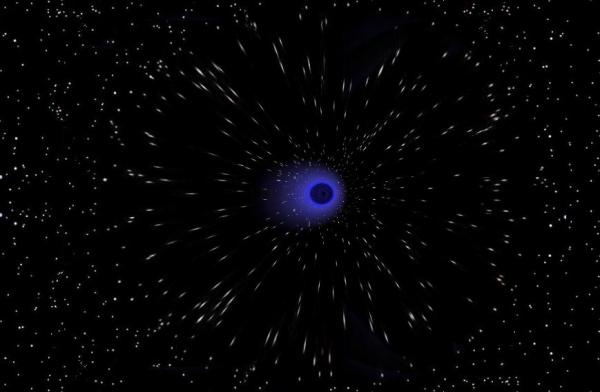BY LETTER
Visser Effect
Technology > Application > Metric Engineering
Science > Physics
Technology > Technology Type or Material > Space-Time Engineering
Technology > Technology Levels > Transapientech / Godtech / Clarketech
Science > Physics
Technology > Technology Type or Material > Space-Time Engineering
Technology > Technology Levels > Transapientech / Godtech / Clarketech
Principle that dictates that no system of wormholes can be configured in such a way as to permit time travel |
 Image from Steve Bowers |
When a wormhole is transported to a distant system by linelayer at relativistic speeds, the two ends of the wormhole become displaced in time due to time dilation. In theory this displacement could allow time travel into the past, especialy if the wormhole mouths are subsequently brought close together again or connected via additional wormholes.
In practice time travel into the past is prevented by the so-called Visser effect. The ends of any single wormhole cannot be brought more closely together than the time difference between them; i.e. if one mouth is a year younger than the other, the ends can't come closer than a light-year without causing a Closed Timelike Curve. The formation of such a CTC immediately generates a Cauchy horizon which destabilises the wormhole and causes a collapse.
Related Articles
- Chronology Protection - Text by Anders Sandberg
The universe seems to counteract attempts to produce time machines, for example due to Visser decay and related vacuum phenomena undermining other forms of time communication. Although the strict Chronology Protection Conjecture by the information age physicist Hawking was subsequently disproved, the chronology protection theorems of Lang, Picard and Joel-5 showed that this tendency can be explained from the consistency theorems, information physics and (eventually) vacuum physics. - Closed Timelike Curve - Text by Anders Sandberg
A closed path through spacetime that is timelike. A CTC would correspond to a possible way of time travel or time communication. However no closed timelike curves have ever been observed to exist. - Linelayer
- Stargate
- Wormhole Bus
- Wormhole Nexus, The
- Wormhole Termini
- Wormholes - A Layman's Guide
- Wormholes - Cultural Factors
Appears in Topics
Development Notes
Text by Xaonon
Initially published on 12 December 2001.
Initially published on 12 December 2001.






